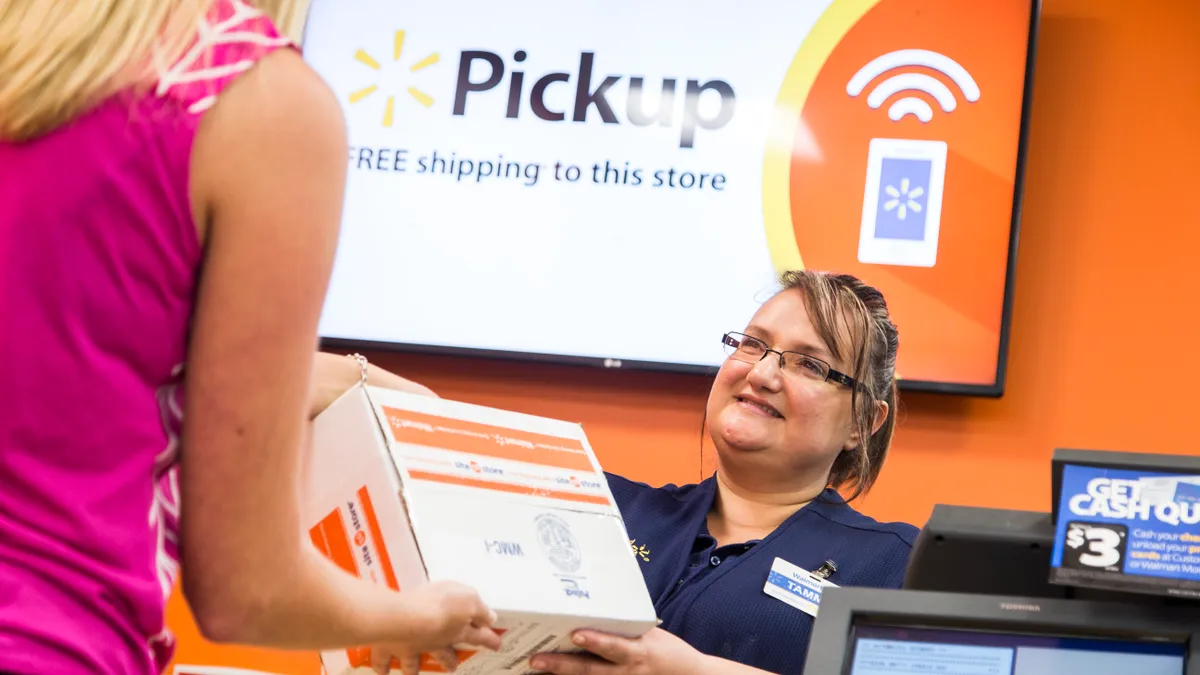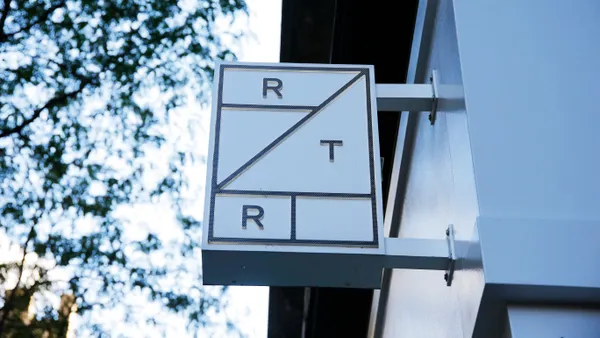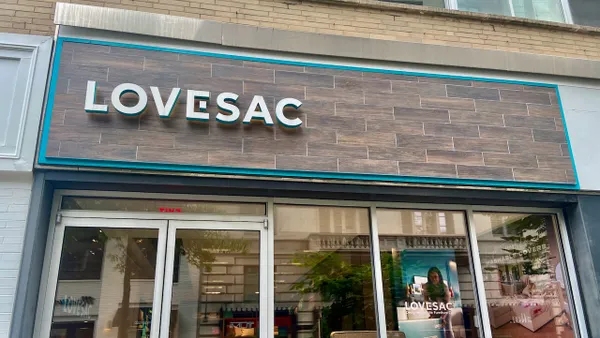At first, Target and Walmart seemed blindsided by Amazon's announcement last Thursday that its free two-day Prime shipping offer is already on its way to becoming free delivery in just one day for many items. Those retailers' shares took a hit in the initial aftermath.
Walmart didn't take that lying down, however, and headed to Twitter late Friday to not just meet Amazon's challenge, but raise it. "One-day free shipping ... without a membership fee," the retail giant tweeted. "Now THAT would be groundbreaking. Stay tuned." Walmart didn't immediately respond to Retail Dive's request for more about what exactly that meant.
One-day free shipping...without a membership fee. Now THAT would be groundbreaking. Stay tuned.
— Walmart (@Walmart) April 26, 2019
But Walmart's tease, like Amazon's announcement, is actually a re-framing of those retailers' existing realities, according to Alice Fournier, vice president of e-commerce and digital at Kantar Consulting.
"Amazon has been doing one-day shipping in many areas for a while now. Now they've made an announcement out of it and a commitment to it — what they're going to do is make the investments that they already were making," she told Retail Dive in an interview. "On the other hand of course Walmart has very successfully been building its store pickup, which is an online transaction that you get in one day. The back and forth is really around framing these services rather than fundamental changes in the existing capabilities. What’s really, really important though is that both retailers in discussing this are really framing their capabilities around convenience, the number one issue for consumers."
And with Walmart and Amazon's public comments about their delivery promises, consumers' expectations have officially been reset, she also said. Both are leveraging their "individual top assets," she said; for Amazon, it's a vast e-commerce fulfillment network and for Walmart, a vast store footprint. Walmart may also explore one-day home delivery, but its store pickup service "clearly makes sense for shoppers," she said, calling it a "fulfillment presence that leverages the store."
Target is similarly using its brick-and-mortar advantage for its own buy online, pick up in-store offer. But it has also transformed its physical locations, with new concepts and formats, that further both convenience and discovery, Fournier said. Target has also demonstrated its appreciation for the consumer demand for a high level of convenience through efforts like free two-day shipping at the holidays, she noted.
In fact, Barclays retail analyst Matthew McClintock in a Monday note to clients called Amazon's announcement "a red herring" that creates an opportunity to invest in Target. His comments are notable because he has previously been bearish on the mass merchant.
"[Target] is already ahead of [Amazon] in same day delivery (Shipt, Drive Up, etc...) and has built a supply chain that fulfills ecommerce primarily from stores (where next-day delivery is much easier), which stands in a stark contrast to most retailers," he wrote in comments emailed to Retail Dive in which he said Target could gain "at least an approximate $140 billion" in market share in home and apparel.
"Conventional retail investing wisdom says that future retail distribution will largely be a barbell, with [Amazon] on one end of each subsector and only one traditional brick & mortar retailer on the other," he wrote. "While we are open to this idea, we believe the definition of subsectors needs to evolve from Wall Street's point of view to how actual consumers think about channels."
Target is better poised than Walmart to take apparel share from Macy's, a space where Amazon usually gets a lot of attention, but Walmart also has potential, in light of "their own improvements in merchandising and store experience," he also said.
"[W]e are firmly in the camp that [Amazon] will not be 100% of the future retail world," McClintock said.













